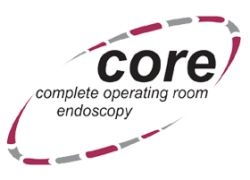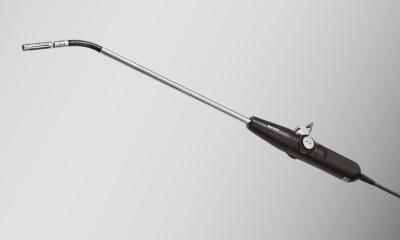Centralised operating theatre control provides many benefits
Core - the integrated operating theatre concept created by Richard Wolf GmbH, has a modular, networked structure to link various devices in the operating theatre.

Dr Jens Burghardt, specialist surgeon and consultant in endoscopic surgery and sonography, and consultant at the Department of General and Thoracic Surgery, Sana Hospital of Berlin Lichtenberg, has used core for several years. ‘The system provides a complete operating room customised to meet the requirements of the individual hospital,’ he explained. ‘The standard package includes an operating table, operating lights, endoscopy equipment and a range of monitors that surround the patient and can be adapted, prior to surgery, to the surgeon’s height and any other preferences he/she may have. This reduces surgery times and improves comfort for surgeons performing the procedure.’
MEDIMAGE, a digital patient imaging and document management system, facilitates intra-operative visualisation of pre-operative image data on monitors located within the operating area. The use of the centralised operating mechanism in core allows the operator, using voice control, to manage imaging data, record images and film sequences and produce electronic operating reports in real time, he added. ‘This facility is also used for training purposes.’
Dr Burghardt pointed out that the ergonomic design of the integrated system allows the surgeon to continue working for a sustained period with no physical interference. ‘Another key advantage is that the LCD modules are connected to a network, eliminating the need for the patient’s doctor to be present in the operating room. The operating theatre also can be monitored from a workstation while administrative tasks are being carried out, thus reducing the workload of consultants and junior doctors and generating savings for the hospital. The advanced technical features of the system also mean that fewer members of staff are needed to perform an endoscopic intervention. At least three surgeons must be present during operations performed in other surgical areas, whereas only two surgeons and a nurse need be present when the Richard Wolf system is used.’
Asked whether this type of system will become more important in the future, Dr Burghardt anticipated that the technology ‘…. will grow in importance as we attempt to improve management in the operating theatres. The number of doctors choosing to specialise in surgery, notably endoscopic surgery, is declining because training takes so long. Regulatory changes vis-à-vis maximum working times must also be taken in to account. Therefore, it will be essential to respond to staff shortages and more stringent training regimes by improving management. In this context, the Richard Wolf system is a particularly useful tool.’
30.08.2006





